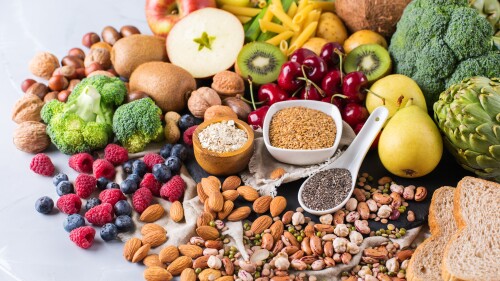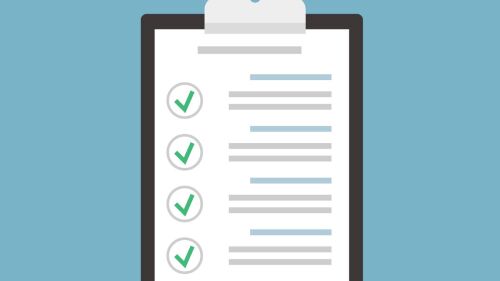Planning and prepping your meals for the week ahead is a game-changer for anyone striving to maintain a healthy, balanced lifestyle while juggling the demands of daily life. This approach to nutrition not only fosters disciplined eating habits but also serves as a cornerstone for achieving personal health and wellness goals.
For first responders, meal prepping offers a practical solution that aligns perfectly with the unpredictable nature of the work. By dedicating a few hours each week to preparing your meals, you can ensure that you have quick access to nutritious and satisfying food that fuels your body and mind, keeping you ready for whatever the day may throw at you. Beyond the convenience, meal prepping can help you maintain a healthy diet, save money and reduce the stress of last-minute food decisions. It’s not just about eating right; it’s about enhancing your overall readiness and performance on the job.
Customized nutrition
One of the most compelling advantages of meal planning and prepping is the enhanced ability to consume a nutritionally balanced diet. By mapping out meals in advance, you can guarantee a variety of nutrients are included in your weekly diet, promoting overall health and preventing nutrient deficiencies. This method allows for a deliberate inclusion of fruits, vegetables, lean proteins, and whole grains, while controlling the temptation to indulge in less nutritious, convenience foods.
If you have dietary needs, look for meal-prepping cookbooks that are geared toward the lifestyle you need to live, such as recipes that support everything from diabetes management to protein intake and more.
- Provides a 4-week structured meal plan
- Includes budget-friendly strategies for healthy eating
- 75 recipes selected for both taste and health
- Provides a comprehensive meal plan for a structured approach to eating healthy
- Includes 130 recipes for slow cookers
- Shares pantry essentials and healthy heart best practices
- 120 high-protein recipes
- Includes a 7-day curated meal plan
- Includes 30-day meal plan
- Shares tips and strategies for lowering sodium intake
Meal-prepping basics: 10 tips to get started
1. Start small. Don’t try to prep all your meals for the week right away. Begin with one meal type, like lunch or dinner, and gradually expand as you get more comfortable with the process.
2. Keep it simple. Choose recipes with minimal ingredients and straightforward preparation steps. Complexity can come later once you’re more experienced.
- Weekly grocery lists
- Pantry substitution suggestions
- Max cooking time per recipe: 45 minutes
3. Plan your meals. Spend a bit of time each week planning your meals. This helps ensure variety and prevents you from getting bored. Also, make a grocery list to streamline your shopping and avoid impulse buys.
- Meal plan stays near the fridge and up to date
- Can easily make edits
4. Invest in quality containers. Good quality, microwave-safe, and freezer-friendly containers are crucial. They keep food fresh longer and make it easy to portion out your meals.
- Bag is double insulated
- Space for multiple meals, snacks and drinks
- Includes:
- 8 meal-prep containers that are freezer-, microwave- and dishwasher-safe
- pill dispenser
- shaker cup
- 2 reusable ice packs
- Microwave-, freezer-, and dishwasher-safe
- 30 containers + lids
5. Batch cook. Cook large quantities of versatile ingredients like proteins, grains, and vegetables at the start of the week. These can be mixed and matched to create different meals, saving you time.
6. Embrace spices and marinades. These can transform the same base ingredients into a variety of flavor profiles, keeping your meals interesting and palatable.
7. Schedule a prep day. Dedicate a few hours one day a week to meal prep. Make it enjoyable by playing your favorite music or listening to a podcast as you cook.
- Track diet, workouts, mood, energy levels and more
- Reflection pages every 2 weeks
8. Make use of your appliances. Slow cookers, pressure cookers, and blenders can make meal prep easier and faster. They allow for hands-off cooking, which is great for multitasking.
- Can function as a slow cooker, food warmer, nonstick pot, sauté pan, cast iron skillet, saucier, saucepan, stock pot, Dutch oven, roasting pan and bread maker
9. Prep snacks, too. Healthy snacks are just as important as meals. Prep things like chopped veggies, fruits, nuts, or energy balls so you have something to grab and go.
- No-spill lid with silicon ring
- Included stainless steel spoons can be clipped to the jar
10. Be flexible and forgiving. Not every meal prep will go perfectly. You might overcook something or realize you don’t like a certain recipe as much as you thought. Learn from these experiences and adjust for next time.
This article, originally published in April 2022, has been updated.


















